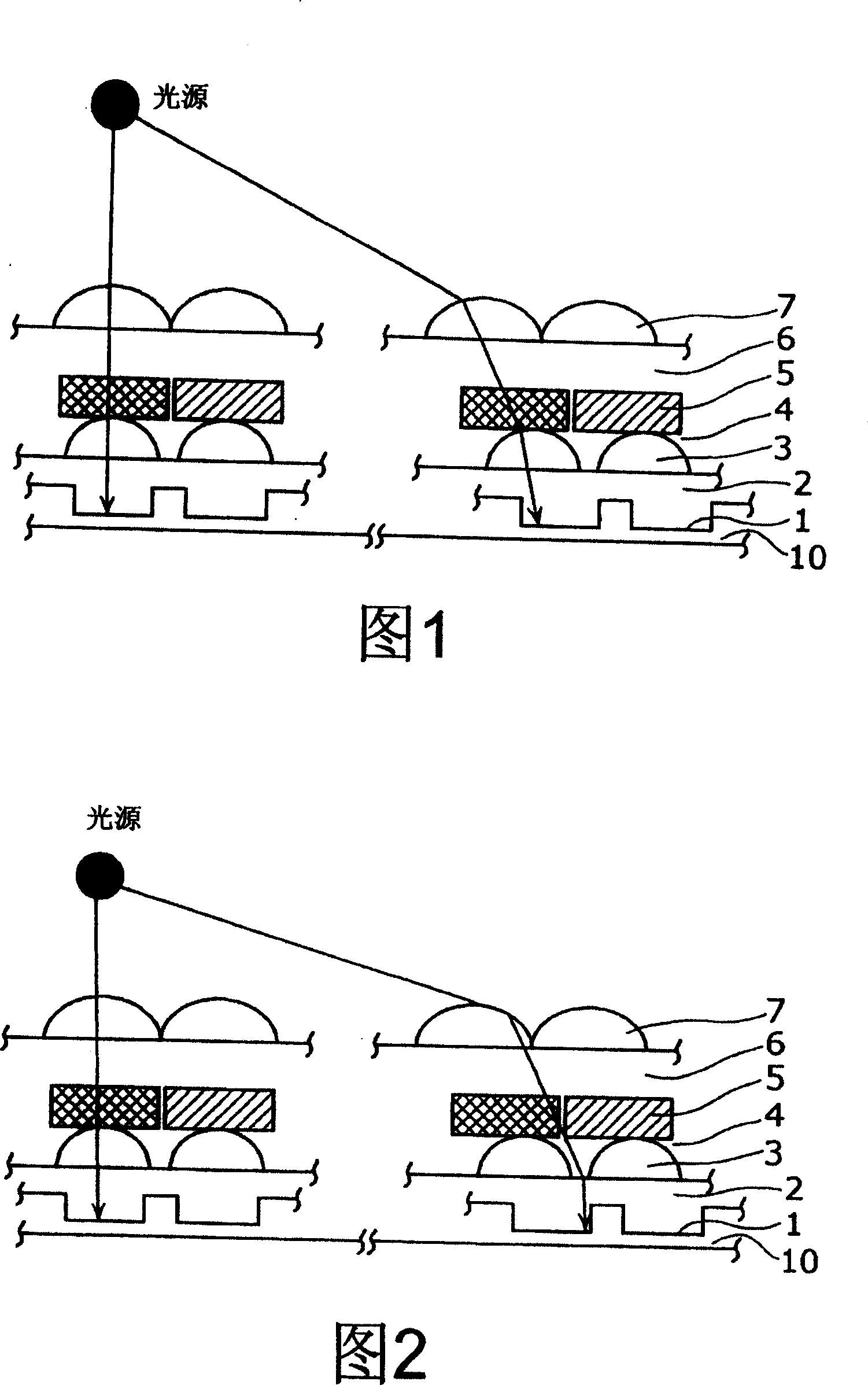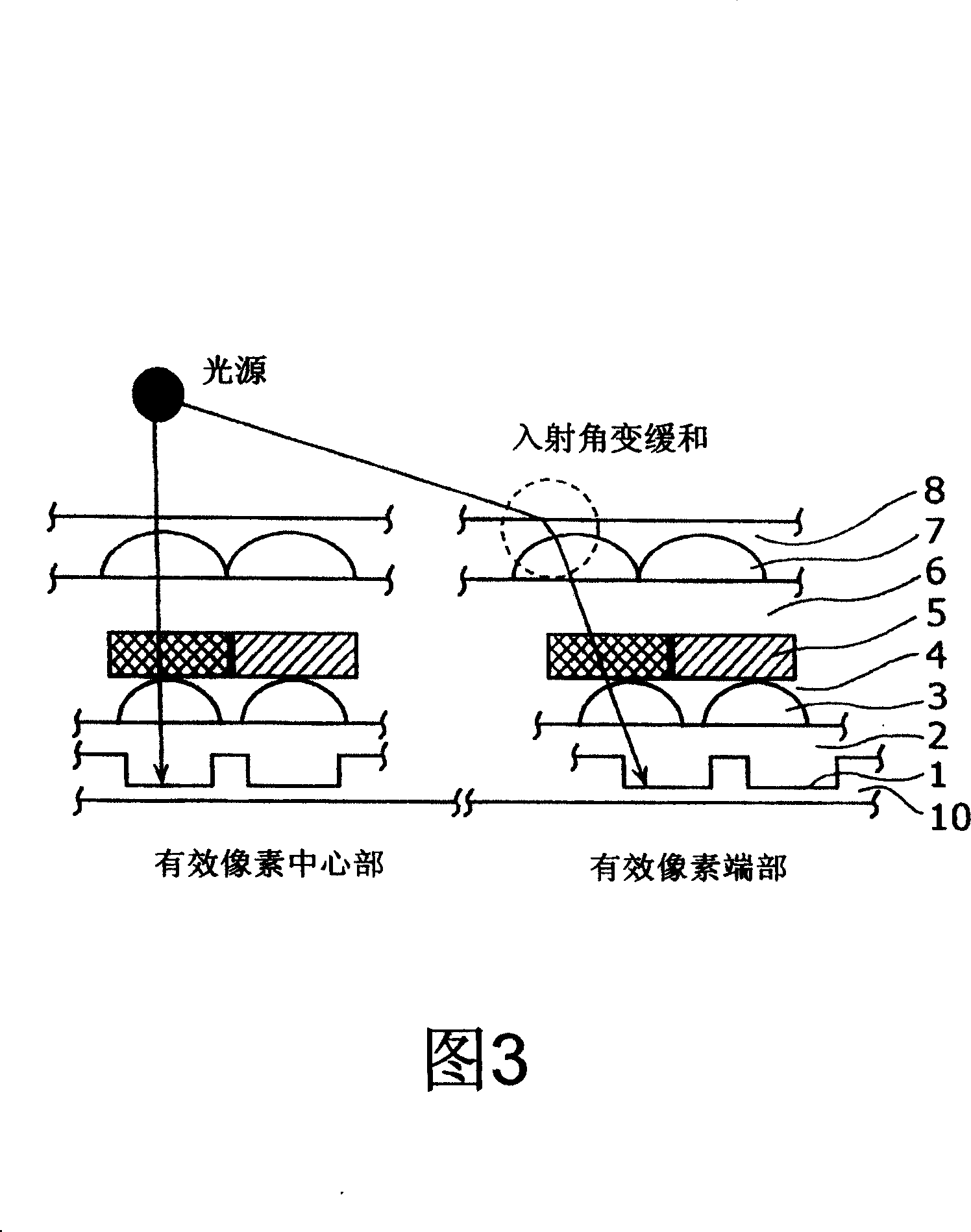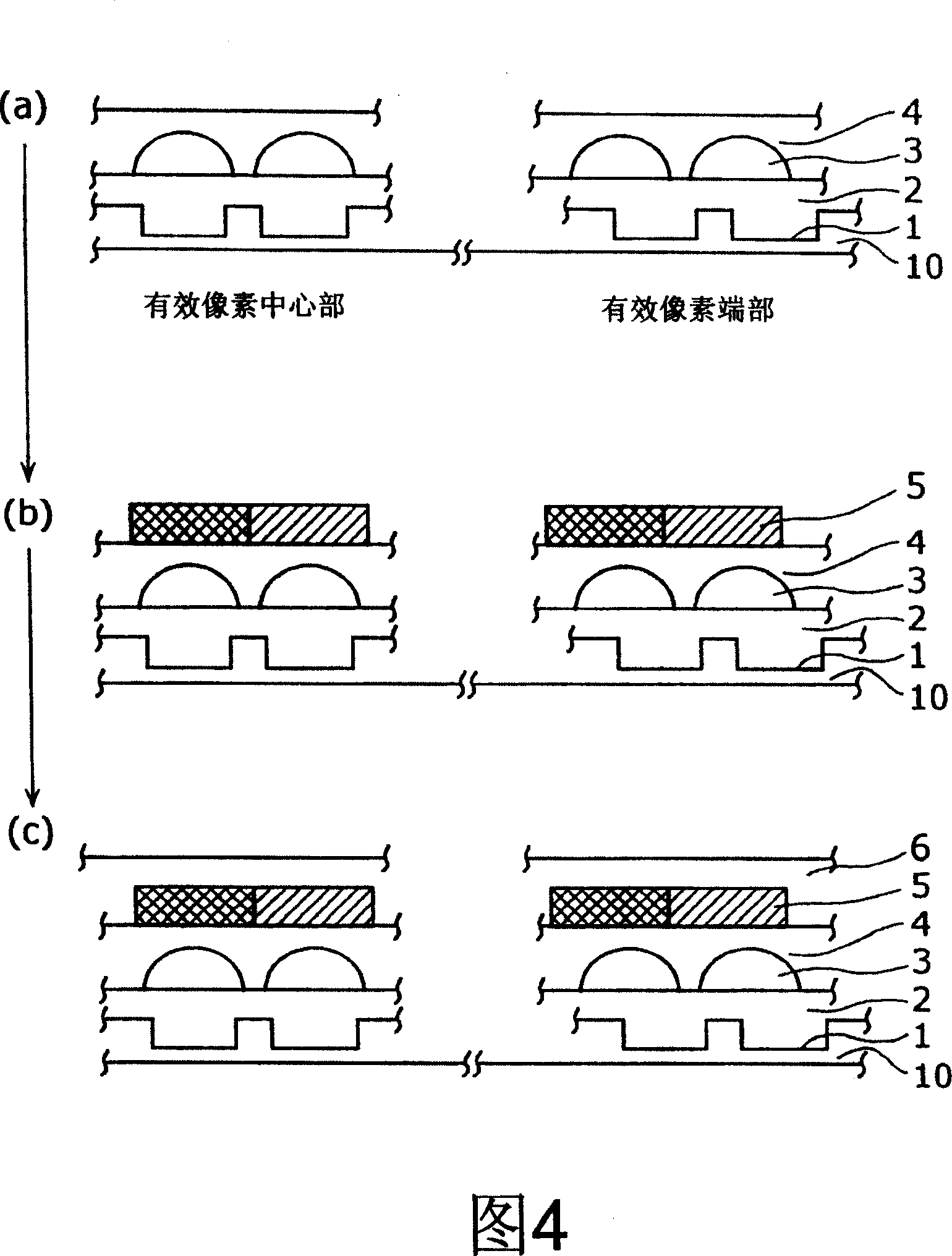Solid-state image sensor, manufacturing method for solid-state image sensor, and camera
A technology of solid-state imaging devices and manufacturing methods, which is applied in the direction of electric solid-state devices, semiconductor devices, instruments, etc., can solve the problems of image quality degradation, shortening of the exit pupil distance, and inability to concentrate light, and achieve shadow reduction and shortening of the exit pupil effect of distance
- Summary
- Abstract
- Description
- Claims
- Application Information
AI Technical Summary
Problems solved by technology
Method used
Image
Examples
no. 1 Embodiment approach
[0043]
[0044] 3 is a cross-sectional view showing the solid-state imaging device according to the first embodiment of the present invention. This solid-state imaging device has a light-receiving surface composed of light-receiving elements (photodiodes) arranged two-dimensionally. This figure shows a cross section of two light receiving elements at the center (the left side of the figure) and a cross section of two light receiving elements at the end (right side of the figure) on the light receiving surface. In addition, the solid line in the figure shows the pattern of the incident light from a light source (corresponding to the lens 110 shown in FIG. 18).
[0045] In this figure, on a photodiode 1 formed on a silicon semiconductor substrate 10 of a solid-state imaging device, a planarized transparent insulating film (protective film) 2 made of BPSG (borophosphosilicate glass) or the like is sequentially stacked and formed. In-layer lens 3 with convex shape and high refr...
no. 2 Embodiment approach
[0066]
[0067] 7 is a cross-sectional view of a solid-state imaging device in a second embodiment of the present invention. The structure of this figure is compared with the structure of FIG. 3, except that the color filter 5 is removed, and the microlens 7 is replaced by a microlens 7a. The description of the same points will be omitted below, and the description will focus on the differences.
[0068] The microlens 7 a is different from the microlens 7 in that it is opaque and doubles as a color filter.
[0069] According to this configuration, similar to the first embodiment, the exit pupil distance can be shortened and shadow shadows can be simulated. In addition, since the microlens 7a also serves as a color filter, the film thickness of the solid-state imaging device can be reduced by an amount equivalent to the thickness of the color filter layer. For example, in the solid-state imaging device in the first embodiment, when the distance from the photodiode 1 to the b...
no. 3 Embodiment approach
[0086]
[0087] 11 is a cross-sectional view of a solid-state imaging device in a third embodiment of the present invention. Compared with the structure in FIG. 3 , the structure in this figure is different in that the color filter 5 is removed, and the in-layer lens 3 is replaced by an in-layer lens 3 a. Hereinafter, the description of the same content is omitted, and the different content is mainly explained.
[0088] The in-layer lens 3 a is different from the in-layer lens 3 in that it is opaque and doubles as a color filter.
[0089] According to this configuration, similar to the first embodiment, the exit pupil distance can be shortened and shadow shadows can be simulated. In addition, since the in-layer lens 3a also serves as a color filter, the film thickness of the solid-state imaging device can be reduced by an amount equivalent to the thickness of the color filter layer. For example, in the solid-state imaging device in the first embodiment, when the distance f...
PUM
 Login to View More
Login to View More Abstract
Description
Claims
Application Information
 Login to View More
Login to View More - R&D
- Intellectual Property
- Life Sciences
- Materials
- Tech Scout
- Unparalleled Data Quality
- Higher Quality Content
- 60% Fewer Hallucinations
Browse by: Latest US Patents, China's latest patents, Technical Efficacy Thesaurus, Application Domain, Technology Topic, Popular Technical Reports.
© 2025 PatSnap. All rights reserved.Legal|Privacy policy|Modern Slavery Act Transparency Statement|Sitemap|About US| Contact US: help@patsnap.com



